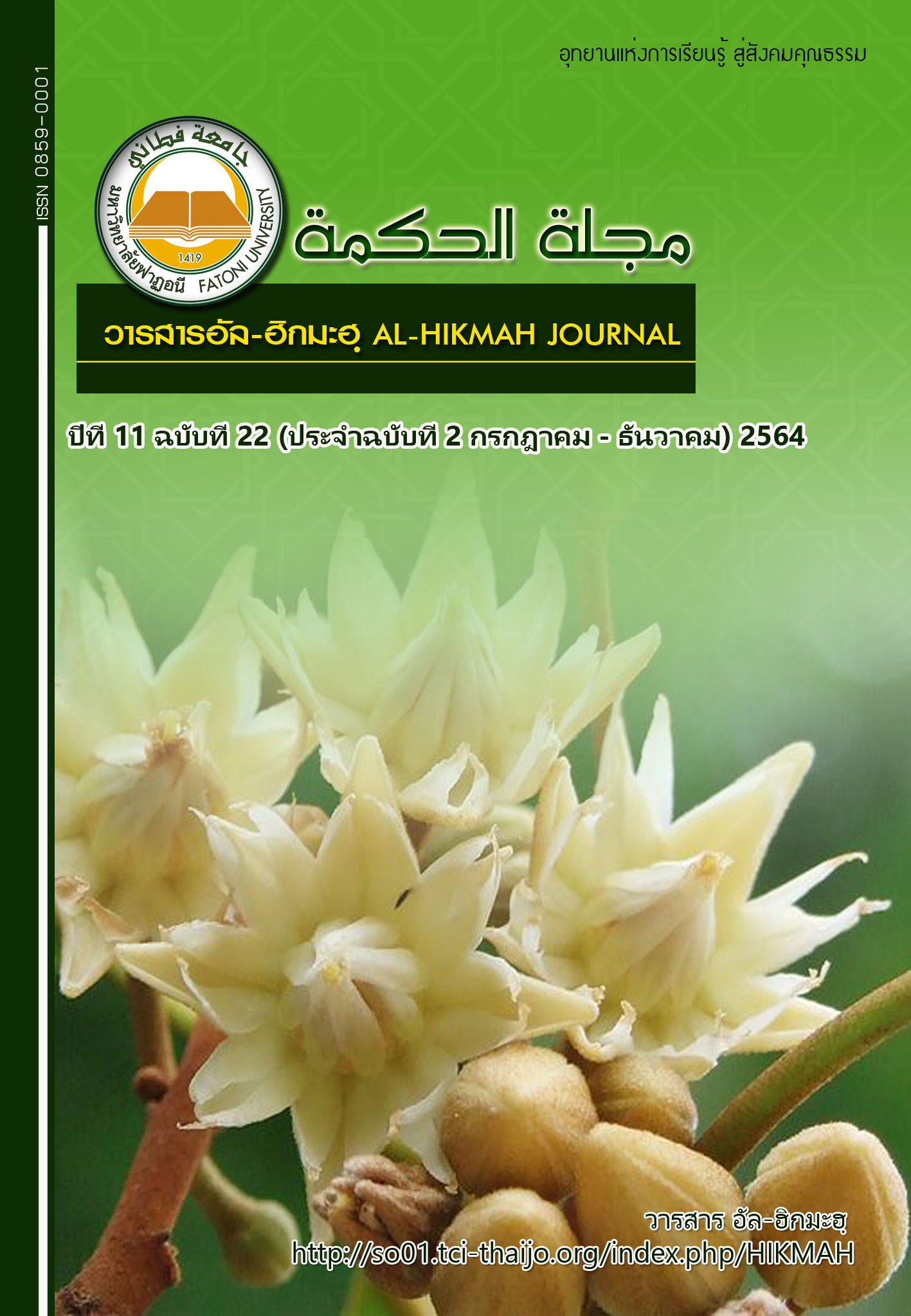Virtues for teachers according to Buddhist principles
Keywords:
Keywords : Morality BuddhismAbstract
ABSTRACTS
People's lives nowadays all have things That happens to us a lot, which is normal. It is a way of life that is in harmony with our life. such as bodily functions such as breathing, heart rate, digestion, excretion, relaxation, analytical thinking body movement All of which must be related to each other. But one thing that works in tandem with the functioning of the body is the mind, the feeling emotional control The mind governs bodily functions that indicate needs and result in physical action. is the development of human is the development of the mind Self-control, learning, having morals and ethics as a lifestyle pattern are the tools to refine the mind in practice to become a perfect person. Having goodness within the mind is therefore very important in today's world. Teachers play a very important role in the responsibility of teaching students. transfer knowledge purify the minds of learners to have good behavior and be a good person as an important force in the further development of the nation The fact that teachers have applied Buddhist principles related to morality, ethics and Buddhist principles to teach students to be good people with good behavior is therefore something that should be promoted in the midst of the change of society that is more materialistic than morality. beautiful in the heart Therefore, promoting the use of Buddhist principles in polishing Training and teaching students, therefore, the development of morality. Ethics to promote a truly good heart
References
ครูบ้านนอก. (2564). หลักคุณธรรมสำหรับครู. สืบค้นจาก : https://www.kroobannok.com/2601 สืบค้นเมื่อ 1 กุมภาพันธ์ 2564
พจนานุกรม ฉบับราชบัณฑิตยสถาน. (2542). คุณธรรมและจริยธรรม. กรุงเทพมหานคร : ราชบัณฑิตยสถาน
พระไตรปิฎกออนไลน์. (2564). ศีล 5. สืบค้นจาก :
https://tripitaka-online.blogspot.com/2016/06/sl003.html สืบค้นเมื่อ 1 กุมภาพันธ์ 2564
วิกิพีเดีย. (2564). อริยสัจ 4. สืบค้นจาก : https://th.wikipedia.org/wiki/%E0%B8%AD%E0%B8%A3%E0%B8%B4%E0%B8%A2%E0%B8%AA%E0%B8%B1%E0%B8%88_4 สืบค้นเมื่อ 1 กุมภาพันธ์ 2564
วิกิพีเดีย. (2564). ขันธ์ 5. สืบค้นจาก : https://th.wikipedia.org/wiki/%E0%B8%82%E0%B8%B1%E0%B8%99%E0%B8%98%E0%B9%8C สืบค้นเมื่อ 1 กุมภาพันธ์ 2564
ระเบียบสานักนายกรัฐมนตรีว่าด้วยการส่งเสริมคุณธรรมแห่งชาติพ.ศ. 2550 ประกาศเมื่อ วันที่ 13 กรกฎาคม พ.ศ. 2520 (ประกาศในราชกิจจานุเบกษา เมื่อวันที่ 25 กรกฎาคม 2550)
วิชัย เทียนถาวร. (2564). ปัญญา. สืบค้นจาก : https://www.matichon.co.th/columnists/news_72460 สืบค้นเมื่อ 1 กุมภาพันธ์ 2564
สังเวียน ประเดิมดี. (2543). คุณธรรมในการดำเนินชีวิต. ว.วิทยาศาสตร์คชสาส์น ปีที่ 22 ฉบับที่ 1 (ก.พ. 2543) : 42-47.
สมเด็จพระญาณสังวร สมเด็จพระสังฆราช (เจริญ สุวฑฺฒโน). (2539) ราชธรรมกับการพัฒนาสังคม.กรุงเทพมหานคร. : โรงพิมพ์เลี่ยงเชียง.
สำนักเลขาธิการคุรุสภา. (2549). คุรุสดุดี ผู้ปฏิบัติตามจรรยาบรรณของวิชาชีพ ประจำปี 2549.
กรุงเทพมหานคร : คุรุสภาลาดพร้าว.
สำนักงานป้องกันและปราบปรามการทุจริตและประพฤติมิชอบในวงราชการ. (2541). รายงานผลการปฏิบัติงานประจำปี 2541. กรุงเทพมหานคร.



